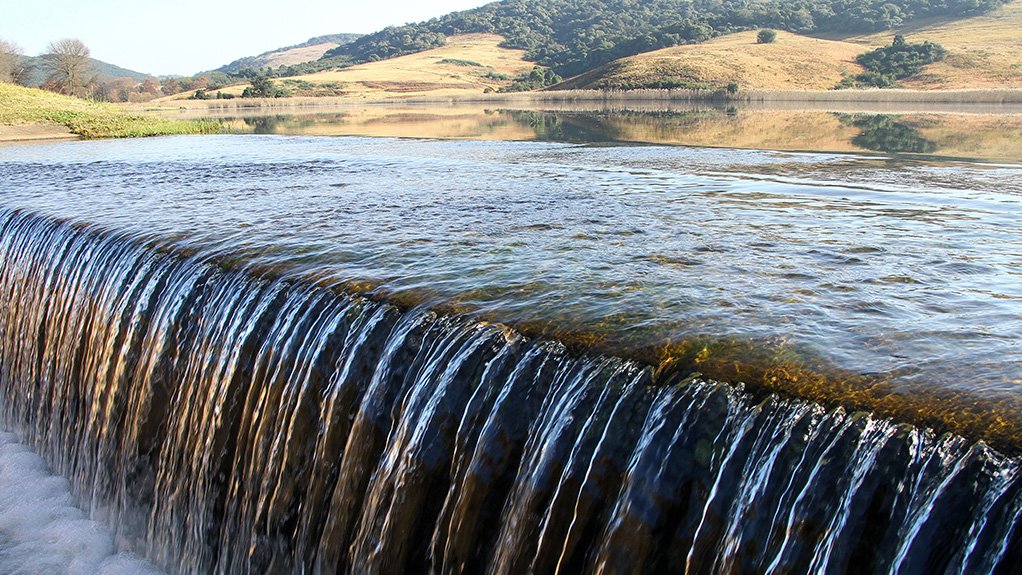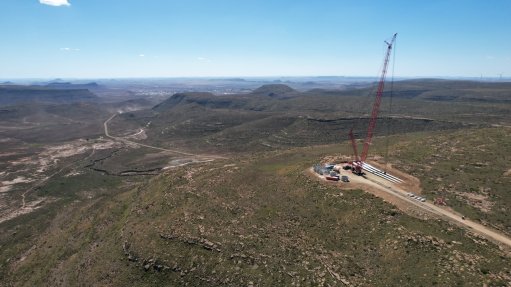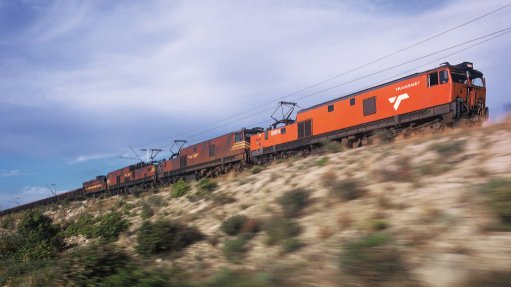Good governance key to addressing water infrastructure challenges


MUNICIPAL MALAISE Municipalities across South Africa are struggling to resolve challenges pertaining to the maintenance of wastewater treatment plants, pump stations and associated infrastructure
Transparency, accountability and good governance practices are critical to address the current water infrastructure crisis in South Africa, emphasises Talbot, a sustainable water solutions company.
Water infrastructure encompasses everything from dams, reservoirs, water treatment systems and water distribution systems, to wastewater and sewage collection systems, pump stations and wastewater treatment plants.
The failure of the water and sanitation infrastructure across many parts of South Africa has become widespread as evidenced by the recent Blue Drop, Green Drop and No Drop reports issued by the Department of Water and Sanitation.
There are considerable challenges in determining the integrity of the water and wastewater systems and the associated scope of infrastructure leakages. With potable water losses (non-revenue water) as high as 45% in some areas it is likely that sewage losses into the environment directly from pump stations and pipelines, although unquantified, are also high.
The infrastructure failures owe much to a lack of proper management, refurbishment and maintenance of the various systems. These issues are exacerbated by loadshedding, says Talbot CEO Carl Haycock, who adds that both water and wastewater treatment requires significant energy consumption for both treatment and transfer, including pumping over large distances and between catchments.
“Voluntary testing by Talbot’s in-house laboratory has demonstrated that municipalities across South Africa are struggling to resolve challenges pertaining to the maintenance and management of wastewater treatment plants, pump stations and associated infrastructure.”
Talbot attributes the bulk of municipalities’ water infrastructure challenges to population growth, deteriorating infrastructure and insufficient or misallocation of funding.
In response to sporadic outbreaks of water-borne illnesses, such as cholera, Talbot has heightened public awareness through numerous water-quality tests. Following the identification of critical E.coli levels and the subsequent closure of specific beaches in Durban during the holiday season, recent findings suggest that these E.coli levels continue to remain elevated, especially after periods of rainfall. This ongoing situation is concerning, as demonstrated by the voluntary weekly samples conducted in January. Haycock says that private-sector involvement (public-private partnerships) has been suggested as a panacea for the integrity failures permeating the water infrastructure sector.
He commends Water and Sanitation Minister Senzo Mchunu’s efforts to enhance regulatory clarity and accountability through the proposed amendments to the Water Services Act and the release, after a hiatus in the past decade, of the Green, Blue and No Drop reports.
These reports are positive steps in creating a greater awareness on the status of our water supply systems, wastewater treatment systems, and the country’s water losses. Such information could be integral to help redress the situation, in addition to highlighting the challenges facing local and provincial governments, as well as water authorities.
Talbot highlights the importance of using the energy crisis as a template, suggesting that the state of water infrastructure may be a more difficult crisis to solve, especially because the public will be less patient with water.
A Matter of Funds
Haycock expresses concern about the insufficient funding for the repair and maintenance of water treatment systems, especially in areas affected by natural disasters. He emphasises that the proposed National Water Pricing Strategy envisions a system that recovers the cost of management, maintenance and refurbishment, among other factors, for water and sanitation infrastructure, from users. This will place a significant additional cost burden on all water users with large users bearing the brunt.
“Every cubic metre of water that you use in your industry . . . has travelled for kilometres along pipelines – it has been pumped, stored and treated. It has had energy and chemicals used in its treatment, following its being piped from a dam – which cost millions, if not billions, to build.”
As part of its efforts to help establish key revenue streams in the water infrastructure sector, Talbot stresses the need for water incentivisation projects that reduce the cost burden of public infrastructure on the fiscus and for clarity regarding the separation of public finances.
Haycock suggests that revenues generated from water should be reinvested in the sector as opposed to its being allocated to the general fiscus.
Using data to track water losses, manage consumers, and cultivate a sustainable payment culture is proposed as a strategy for the sector. Haycock highlights the potential collaboration between municipalities and the private sector.
Haycock also hails the involvement of the mining industry and its efforts to assist with the operation of municipal water infrastructure, particularly on the wastewater side.
Although more effort is required from both sides to mitigate against a lack of trust, there are positive indications with some mines willing to allocate their excess water to municipalities.
He adds that long-term planning and greater expertise are crucial to ensure sustainable water provision for the future.
Haycock concludes by shedding light on Talbot’s multifaceted role beyond a laboratory or turnkey provider of solutions, emphasising the company’s involvement in financing water projects and carrying out water-security consulting projects from conceptualisation through bankable feasibility studies and detailed design to solution implementation.
Comments
Press Office
Announcements
What's On
Subscribe to improve your user experience...
Option 1 (equivalent of R125 a month):
Receive a weekly copy of Creamer Media's Engineering News & Mining Weekly magazine
(print copy for those in South Africa and e-magazine for those outside of South Africa)
Receive daily email newsletters
Access to full search results
Access archive of magazine back copies
Access to Projects in Progress
Access to ONE Research Report of your choice in PDF format
Option 2 (equivalent of R375 a month):
All benefits from Option 1
PLUS
Access to Creamer Media's Research Channel Africa for ALL Research Reports, in PDF format, on various industrial and mining sectors
including Electricity; Water; Energy Transition; Hydrogen; Roads, Rail and Ports; Coal; Gold; Platinum; Battery Metals; etc.
Already a subscriber?
Forgotten your password?
Receive weekly copy of Creamer Media's Engineering News & Mining Weekly magazine (print copy for those in South Africa and e-magazine for those outside of South Africa)
➕
Recieve daily email newsletters
➕
Access to full search results
➕
Access archive of magazine back copies
➕
Access to Projects in Progress
➕
Access to ONE Research Report of your choice in PDF format
RESEARCH CHANNEL AFRICA
R4500 (equivalent of R375 a month)
SUBSCRIBEAll benefits from Option 1
➕
Access to Creamer Media's Research Channel Africa for ALL Research Reports on various industrial and mining sectors, in PDF format, including on:
Electricity
➕
Water
➕
Energy Transition
➕
Hydrogen
➕
Roads, Rail and Ports
➕
Coal
➕
Gold
➕
Platinum
➕
Battery Metals
➕
etc.
Receive all benefits from Option 1 or Option 2 delivered to numerous people at your company
➕
Multiple User names and Passwords for simultaneous log-ins
➕
Intranet integration access to all in your organisation



















